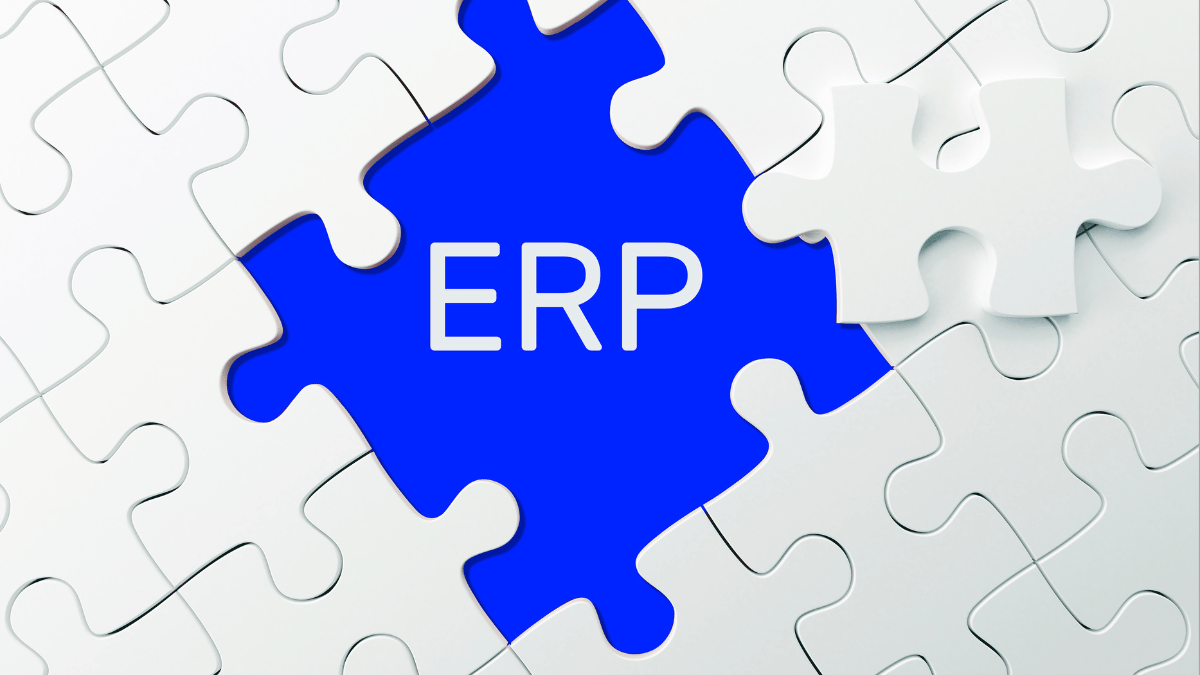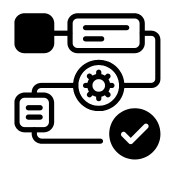ERP for Custom Manufacturing: Tailored Solutions for Precision Production

Custom manufacturing is a rapidly growing sector driven by the demand for unique, high-precision, made-to-order products.
Whether it’s specialized machinery, fabricated components, or bespoke furniture, custom manufacturers must manage complex operations, variable orders, and customer-specific requirements with absolute precision.
Unlike mass production, where processes are standardized, custom manufacturing depends heavily on flexibility, traceability, and agility.
To manage this complexity, an Enterprise Resource Planning (ERP) system built specifically for custom manufacturing becomes indispensable.
These solutions integrate every aspect of production, design, materials, procurement, scheduling, and delivery, into a unified digital ecosystem that enhances visibility, efficiency, and profitability.
What is Custom Manufacturing ERP?
Understanding ERP Systems for Made-to-Order Production
An ERP system is an integrated suite of software modules that connect various business processes within an organization, such as production, finance, procurement, sales, and inventory management, into one cohesive system.
For custom manufacturers, ERP solutions are tailored to handle the unique workflows of engineer-to-order (ETO), make-to-order (MTO), and assemble-to-order (ATO) production models.
Unlike traditional ERP systems designed for repetitive manufacturing, custom manufacturing ERP manages variable designs, dynamic bills of materials (BOMs), fluctuating order quantities, and frequent engineering changes.
It bridges the gap between customer requirements and production execution by ensuring every order is managed as a distinct project, tracked from quotation to delivery.
How Custom Manufacturing Differs from Mass Production

Mass production operates on standardization, repetition, and scale. Every product is identical, and processes are optimized for speed and cost efficiency. Custom manufacturing, however, thrives on variability. Each order could differ in dimensions, materials, specifications, and delivery timelines.
This difference creates several challenges:
- Each job requires unique engineering input.
- Material requirements fluctuate with every new design.
- Scheduling and resource planning must be adaptive.
- Accurate cost estimation and quoting become more complex.
Standard ERP systems struggle to accommodate such dynamic requirements. Custom manufacturing ERP software resolves these issues by allowing for flexible BOM structures, dynamic scheduling, and precise job costing tools that adapt to changing project scopes.
Why Custom Manufacturers Need Specialized ERP Software
Custom manufacturers deal with fluctuating customer specifications, changing deadlines, and high-mix, low-volume orders. Without a system that synchronizes every department, from design and purchasing to production and finance, miscommunication and inefficiency are inevitable.
Specialized ERP solutions bring every process onto one platform, offering:
- Real-time visibility into work orders and job progress.
- Synchronization between design, inventory, and production.
- Automated workflows to minimize manual intervention.
- Integrated costing and reporting tools for financial accuracy.
Leading ERP solution providers like Nakshatra Solutions deliver precisely these capabilities. By integrating systems like TallyPrime and Odoo ERP, they enable manufacturers to gain control over operations, reduce waste, and increase throughput, all while maintaining flexibility for custom orders.

Real-Time Production Visibility and Control
One of the biggest advantages of ERP systems in custom manufacturing is real-time visibility. Supervisors can track job progress, monitor resource utilization, and identify bottlenecks as they occur. Advanced dashboards and mobile access make it possible for decision-makers to oversee production from anywhere.
This visibility allows teams to respond quickly to disruptions, machine downtime, material shortages, or design revisions, before they impact delivery schedules.

Streamlined Order-to-Delivery Workflow
ERP connects every phase of the order lifecycle, quotation, design approval, material procurement, production scheduling, quality assurance, and dispatch. When a new order is created, data automatically flows through all departments. This seamless transition eliminates redundant data entry and ensures that each stakeholder has up-to-date information.
The result is a shorter lead time, fewer errors, and consistent on-time delivery, a key advantage for custom manufacturers dealing with demanding clients.

Improved Material Planning and Inventory Optimization
In custom manufacturing, overstocking leads to excess costs, while understocking causes production delays. ERP systems include Materials Requirement Planning (MRP) features that calculate exactly what materials are needed and when.
Automatic replenishment alerts, supplier management, and warehouse tracking ensure optimal inventory levels. This reduces waste, lowers carrying costs, and maintains smooth production flow even for highly variable orders.

Improved Material Planning and Inventory Optimization
Custom manufacturing involves constant communication between design, production, procurement, and finance teams. ERP systems eliminate departmental silos by creating a single source of truth.
Design changes automatically update material lists, cost estimates, and work orders. Procurement teams can access real-time stock levels and issue purchase orders directly from the system. This inter-departmental collaboration reduces miscommunication and accelerates decision-making.

Enhanced Collaboration Across Departments
Custom manufacturing involves constant communication between design, production, procurement, and finance teams. ERP systems eliminate departmental silos by creating a single source of truth.
Design changes automatically update material lists, cost estimates, and work orders. Procurement teams can access real-time stock levels and issue purchase orders directly from the system. This inter-departmental collaboration reduces miscommunication and accelerates decision-making.

Greater Customer Satisfaction Through On-Time Delivery
ERP systems provide accurate delivery timelines by integrating order tracking, production scheduling, and dispatch management. Customers can receive real-time updates on order status through integrated CRM or customer portals.
With fewer delays and consistent communication, businesses build stronger relationships and earn repeat orders, an essential factor for growth in the competitive custom manufacturing sector.
Core Features of Custom Manufacturing ERP Systems

Product Configuration and BOM Management
Every custom order begins with a product configuration process. ERP systems enable engineers to define flexible BOMs that can adapt to design modifications without disrupting the overall workflow.
Version control ensures that every design iteration is traceable, while integration with CAD software allows for seamless data flow from design to production.
Dynamic Scheduling and Resource Planning
Scheduling is one of the most complex aspects of custom manufacturing. ERP solutions use dynamic scheduling tools that adjust automatically to changing priorities, machine capacities, and manpower availability.
These tools simulate different production scenarios, helping planners choose the most efficient schedule while maintaining delivery commitments.
Job and Work Order Management
Each customer order in a custom manufacturing setup functions as an independent project. ERP systems allow for precise job tracking, linking every work order to its materials, labor, and production history.
Supervisors can view real-time job status, record shop-floor data, and measure performance metrics, improving accountability and transparency across operations.
Materials Requirement Planning (MRP)
An integrated MRP module calculates material needs based on confirmed sales orders, production schedules, and inventory status. It automatically generates purchase requisitions and optimizes procurement cycles.
This minimizes material shortages, reduces lead time, and ensures timely production execution.
Quality Control and Traceability
Custom manufacturing often involves strict compliance and quality standards. ERP systems include built-in quality control modules for inspection planning, defect tracking, and compliance reporting.
Traceability features enable manufacturers to track materials and components from supplier to finished product, which is crucial for industries like automotive, aerospace, and precision engineering.
Inventory and Warehouse Management
ERP systems provide complete control over stock movement, from raw materials to finished goods. Barcode or RFID integration allows real-time tracking of goods, while automated location management ensures efficient warehouse utilization.
Lot and batch tracking capabilities ensure accurate recall management if defects or issues arise later in the supply chain.
Procurement and Supplier Management
Procurement modules streamline supplier interactions, manage purchase orders, and track supplier performance. ERP platforms maintain historical purchase data, compare quotations, and ensure compliance with procurement policies.
Automated approval workflows speed up purchasing, while integrated vendor portals enhance supplier communication.
Sales, CRM, and Customer Portal Integration
ERP systems integrate seamlessly with Customer Relationship Management (CRM) tools, ensuring sales teams have visibility into production capacity, order history, and pricing.
Customer portals enable clients to submit orders, approve quotations, and track production progress online. This transparency enhances trust and simplifies communication between customers and manufacturers.
Accounting, Costing, and Financial Reporting
Finance is the backbone of any manufacturing business. ERP solutions unify financial processes, accounts payable/receivable, general ledger, payroll, and project costing, within the same platform.
Custom manufacturers can instantly view profitability per order, department, or product line. Automated reporting reduces manual bookkeeping and ensures compliance with local accounting standards.
Real-Time Analytics and Dashboards
ERP analytics tools provide decision-makers with powerful insights into operational performance. Custom dashboards display KPIs such as order status, production efficiency, cost variance, and delivery performance.
Predictive analytics help forecast demand, identify process bottlenecks, and improve long-term planning.
With these insights, managers can make data-driven decisions that enhance productivity, control costs, and drive sustainable growth.
Industry-Specific ERP Capabilities for Custom Manufacturers
Every custom manufacturer operates differently depending on the products they build and the processes they follow. A one-size-fits-all ERP system cannot meet the nuanced demands of fabrication, precision machining, furniture design, or electronics assembly. That’s why industry-specific ERP capabilities are critical, they adapt to unique production workflows, compliance needs, and customer expectations.
ERP for Fabrication and Metal Works
Fabrication and metalworking industries deal with projects that require precise material control, nesting optimization, and real-time monitoring of job progress. An ERP tailored for this sector allows for:
- Job-based costing to track profitability at each stage.
- Material cutting and nesting modules to minimize waste.
- Weld tracking, fabrication scheduling, and inspection logs for quality assurance.
- Integration with CAD/CAM systems for seamless data transfer between design and manufacturing.
With these tools, fabricators can improve production planning, reduce rework, and ensure every project meets client specifications.
ERP for Custom Machinery and Equipment
Manufacturers of custom machinery often operate on an engineer-to-order (ETO) basis, where every project is unique. ERP solutions for this industry must support multi-level BOMs, design revisions, and change management. Key capabilities include:
- Integration between design (CAD/PLM) and production systems.
- Project-based costing and progress billing for long-duration contracts.
- Advanced scheduling to manage parallel engineering and assembly activities.
- After-sales service modules to manage warranty claims and maintenance schedules.
These features enable machinery manufacturers to control complexity, ensure timely delivery, and maintain profitability.
ERP for Furniture and Woodworking
Furniture manufacturers face constant challenges with design customization, raw material variation, and batch-based production. ERP software designed for this industry provides:
- Product configurators that enable easy customization of size, finish, and material.
- Material optimization tools for cutting plans and yield improvement.
- Work order tracking for batch production and assembly management.
- Integration with POS or e-commerce systems for direct-to-customer sales.
Such systems streamline the transition from design to delivery, ensuring on-time completion and quality consistency for each order.
ERP for Electronics and Components Manufacturing
Electronics manufacturers manage complex supply chains, high component turnover, and stringent quality standards. Industry-specific ERP systems incorporate:
- Lot and serial number tracking for complete traceability.
- Compliance management for industry standards such as RoHS and ISO.
- Automated MRP and supplier coordination to ensure component availability.
- Testing and calibration tracking for product reliability.
This integration minimizes downtime caused by component shortages and enhances quality control across every production batch.
ERP for Industrial Machinery
Industrial machinery manufacturing often involves multi-phase projects, from engineering and fabrication to assembly and field installation. ERP software must manage:
- Project scheduling across departments and subcontractors.
- Multi-location inventory control for parts and assemblies.
- Equipment lifecycle management, including service and maintenance tracking.
- IoT integration for predictive maintenance and performance monitoring.
By aligning engineering, procurement, and production data, manufacturers can deliver reliable equipment that meets performance and regulatory standards.
ERP for Automotive Components and Tooling
The automotive and tooling industry demands precision, consistency, and compliance. ERP for this sector includes:
- Tool tracking and preventive maintenance modules.
- Lot control and traceability for every part produced.
- Supplier quality management to meet OEM standards.
- Just-in-Time (JIT) production and warehouse automation for lean operations.
Manufacturers benefit from improved efficiency, reduced scrap, and better visibility into every stage of production, from raw material procurement to final dispatch.
Cloud vs On-Premise ERP for Custom Manufacturing
Choosing between cloud-based and on-premise ERP deployment models is a crucial decision for custom manufacturers. The right choice depends on factors such as business size, IT infrastructure, data security needs, and long-term scalability goals.
Advantages of Cloud ERP for Agile Operations
Cloud ERP systems are hosted on secure remote servers and accessed through the internet. They offer numerous advantages, especially for small and mid-sized custom manufacturers:
- Lower upfront costs with subscription-based pricing.
- Rapid deployment without the need for extensive hardware setup.
- Scalability to add users or modules as the business grows.
- Remote accessibility for field teams, shop floor operators, and managers.
- Automatic updates and backups, ensuring system reliability and compliance.
Cloud ERP is ideal for businesses seeking agility, minimal maintenance, and real-time collaboration across multiple locations.
When to Choose On-Premise for Custom Manufacturing
On-premise ERP systems are installed locally on company servers and managed by in-house IT teams. While they require higher initial investment, they offer:
- Greater control over data and infrastructure.
- Enhanced customization for complex manufacturing workflows.
- Offline access and local processing for high-security environments.
- Integration flexibility with legacy equipment and in-house software.
Manufacturers dealing with sensitive IP, strict data regulations, or highly specialized workflows may prefer on-premise solutions for the control and customization they provide.
Hybrid ERP Deployment for Flexibility and Control
A hybrid ERP model combines the strengths of both cloud and on-premise systems. Manufacturers can maintain sensitive data or core operations on-premise while leveraging cloud modules for remote access, analytics, and scalability.
This approach is particularly useful for growing custom manufacturers who want flexibility without compromising data security. Many implementation partners, such as Nakshatra Solutions, help businesses design hybrid ERP architectures that align perfectly with their operational goals.
How to Choose the Right Custom Manufacturing ERP
Selecting the best ERP for your manufacturing operations is a strategic decision. Beyond features, it’s about fit, how well the system aligns with your workflows, data requirements, and long-term growth objectives.
Assessing Your Customization and Integration Needs
Custom manufacturers often rely on unique workflows, CAD tools, and third-party applications. The ERP you choose should offer flexible customization and robust integration capabilities with your existing systems. APIs, modular architecture, and support for industry-specific extensions are essential for seamless interoperability.
Evaluating Vendor Experience in Custom Manufacturing
Not every ERP provider understands the complexity of made-to-order manufacturing. Partnering with a vendor who has proven expertise in this domain ensures a smoother implementation and better post-deployment support. Evaluate the vendor’s case studies, client base, and track record in industries similar to yours.
Comparing Licensing, Implementation, and Support Costs
Total Cost of Ownership (TCO) includes software licensing, customization, data migration, training, and maintenance. Compare both short-term and long-term expenses across vendors. Some ERP solutions have lower entry costs but higher ongoing fees, while others offer bundled support and upgrades.
Transparent pricing and dedicated support teams make a significant difference, especially during post-implementation optimization.
Checking for Scalability and Future Growth
A modern ERP should grow with your business. Whether expanding production lines, adding new product variants, or opening new locations, the system must handle increased data loads and complex workflows without performance issues.
Scalability also ensures you can introduce advanced features, like AI-driven forecasting, IoT connectivity, or automated reporting, without system overhauls.
Security, Compliance, and Data Control Considerations
Data is the backbone of custom manufacturing operations. The chosen ERP must provide enterprise-grade security, including encryption, role-based access, and audit trails. Compliance with industry standards such as ISO, GST, or tax reporting is equally critical.
Ensure your ERP provider offers robust disaster recovery, data redundancy, and periodic security updates to protect sensitive design and financial information.
Implementation Roadmap for Custom Manufacturing ERP
Implementing ERP in a custom manufacturing setup requires a structured approach. A well-defined roadmap ensures smooth transition, minimal disruption, and faster ROI.
Process Mapping and Requirement Analysis
The first step involves mapping all existing business processes, sales, design, procurement, production, quality control, and finance. Detailed requirement analysis helps identify inefficiencies, duplication, and automation opportunities.
Collaborative workshops with cross-functional teams ensure the ERP design aligns perfectly with real-world workflows.
System Configuration and Custom Module Development
Once requirements are finalized, the ERP is configured to match your processes. Custom modules, such as job costing, production scheduling, or customer portals, are developed to meet specific needs.
Modern ERP platforms support modular development, allowing businesses to activate features as needed without disrupting existing operations.
Data Migration and System Integration
Accurate data migration is vital for a successful implementation. Historical records of materials, customers, suppliers, and financials are cleaned, formatted, and imported into the new system.
Integration with CAD, CRM, and other third-party tools ensures continuity and reduces the learning curve for users.
Training and Change Management
Employee adoption is often the deciding factor in ERP success. Conduct hands-on training sessions, create user manuals, and provide continuous support to build confidence among staff.
Change management strategies, such as pilot runs, role-based testing, and feedback loops, help address resistance and encourage adoption.
Testing, Go-Live, and Continuous Improvement
Before going live, extensive testing is conducted to validate workflows, data accuracy, and performance. Once the system passes all checks, it is deployed organization-wide.
Post-implementation, regular audits and performance reviews help identify improvement areas. Continuous updates and enhancements keep the system aligned with evolving business goals.
Common Challenges and How to Overcome Them
While ERP systems revolutionize custom manufacturing, implementing them isn’t without challenges. From handling intricate engineering data to ensuring user adoption, manufacturers often face hurdles that can delay ROI if not properly managed. Understanding these challenges, and how to overcome them, is key to successful ERP transformation.
Managing Complex BOMs and Change Orders
In custom manufacturing, every product may have a unique Bill of Materials (BOM). These BOMs evolve throughout the project as customer requirements change, creating difficulties in version control and traceability.
Solution:
A modern ERP system must support dynamic, multi-level BOM management with revision tracking. This allows engineers to update designs, materials, and quantities in real time without disrupting ongoing production. Integration with CAD and PLM software ensures that design changes automatically cascade to procurement, inventory, and production schedules.
Manufacturers partnering with experienced implementers such as Nakshatra Solutions can ensure seamless BOM synchronization through Tally or Odoo ERP customization, reducing errors and maintaining data consistency across departments.
Balancing Customization with System Upgrades
ERP customization is essential for aligning software workflows with unique business needs. However, excessive or poorly managed customization can create compatibility issues during version upgrades or vendor updates.
Solution:
Adopt a modular customization approach, enhance workflows using APIs and extensions rather than altering the system’s core architecture. Regular update testing and sandbox environments help validate new features before rollout. A good ERP partner will balance flexibility with maintainability, ensuring that updates don’t compromise stability.
User Adoption and Training Issues
Even the most advanced ERP system can fail if employees resist or misuse it. Common reasons include inadequate training, poor interface design, or a lack of understanding about how the system benefits their daily work.
Solution:
Invest early in comprehensive user training and change management. Conduct workshops for each department, demonstrate real-world use cases, and assign “ERP champions” who can mentor peers. Encourage feedback loops post-launch to refine processes based on user experience.
Integrating Legacy Systems and Machines
Many custom manufacturers still rely on legacy software or standalone machinery with limited connectivity. Integrating these systems into a centralized ERP can be challenging due to incompatible data formats or outdated interfaces.
Solution:
Modern ERP solutions offer middleware and API connectors that bridge legacy applications, machines, and IoT devices. Where full integration isn’t possible, data synchronization through import/export automation ensures continuity. Over time, gradual system upgrades can eliminate dependency on outdated tools while maintaining data integrity.
Leading ERP Systems for Custom Manufacturing in 2025
The ERP landscape continues to evolve rapidly, offering manufacturers a wide array of platforms designed for flexibility, scalability, and industry-specific needs. Below are ten of the leading ERP systems in 2025 that cater particularly well to custom manufacturing.
Epicor Kinetic
Epicor Kinetic remains a dominant choice for discrete and custom manufacturers. Known for its intuitive interface and robust production management tools, it supports engineer-to-order (ETO), make-to-order (MTO), and mixed-mode manufacturing. Features include real-time job tracking, advanced scheduling, and quality control integration. Its cloud-native architecture allows easy scalability and analytics-driven decision-making.
NetSuite Manufacturing
NetSuite ERP, by Oracle, is a comprehensive cloud solution ideal for mid-to-large custom manufacturers. Its manufacturing module integrates production planning, supply chain management, and financials in a single ecosystem. With strong CRM and e-commerce integration, NetSuite provides an end-to-end view, from customer order to product delivery, making it a preferred choice for companies seeking agility and global visibility.
Infor CloudSuite Industrial (SyteLine)
Infor CSI (SyteLine) is designed for complex manufacturing environments that demand precision and configurability. It excels in BOM management, scheduling, and engineering change control. Built on Infor’s cloud platform, CSI supports advanced planning, supply chain optimization, and predictive analytics, helping manufacturers reduce downtime and improve cost accuracy.
Acumatica Cloud ERP
Acumatica offers a flexible, modular ERP built for growing manufacturers. Its cloud-based deployment and open APIs make it highly adaptable for custom workflows. It includes robust modules for production management, job costing, and customer relationship management. Real-time dashboards provide actionable insights that empower smarter decision-making.
JobBOSS²
JobBOSS² (by ECI Software Solutions) is popular among small and medium-sized job shops and custom fabricators. It specializes in estimating, quoting, job tracking, and shop floor control. With mobile access and built-in analytics, JobBOSS² enables real-time visibility of production progress, helping manufacturers optimize resources and improve delivery performance.
DELMIAWorks (IQMS)
DELMIAWorks, part of Dassault Systèmes, delivers powerful ERP and MES integration tailored for precision and industrial manufacturers. It provides end-to-end production tracking, quality assurance, and supply chain visibility. Its real-time machine data collection capabilities are ideal for manufacturers embracing Industry 4.0.
E2 Shop System
The E2 Shop System focuses on job-based manufacturing environments. It offers streamlined estimating, scheduling, purchasing, and shipping tools, all within a user-friendly interface. E2’s strength lies in its simplicity and scalability, making it ideal for custom fabrication and machining workshops transitioning from manual to digital operations.
Odoo Manufacturing
Odoo Manufacturing is a versatile open-source ERP platform known for flexibility and cost-effectiveness. It offers configurable BOMs, work order management, MRP, and real-time reporting.
Integration with accounting, CRM, and inventory modules creates a unified ecosystem for growing manufacturers. Through implementation partners like Nakshatra Solutions, Odoo can be customized extensively for industries like metalworks, textiles, and machinery production.
Katana Cloud ERP
Katana is designed for small and mid-sized manufacturers looking for simplicity and automation. It integrates seamlessly with e-commerce platforms like Shopify and WooCommerce. Katana offers live inventory tracking, batch management, and visual production scheduling, perfect for businesses needing real-time visibility without complex configurations.
VasyERP
VasyERP, an emerging Indian ERP platform, combines manufacturing, retail, and accounting functionalities. It offers strong inventory management, multi-location tracking, and GST-compliant accounting. Its cloud-first architecture and localized support make it increasingly popular among SMEs seeking affordable, scalable ERP options.
Future Trends in Custom Manufacturing ERP
As technology advances, ERP systems are evolving from static process managers to intelligent ecosystems that drive innovation and decision-making. The future of ERP in custom manufacturing is defined by digital transformation, data-driven intelligence, and sustainability.
AI and Machine Learning for Predictive Production
Artificial Intelligence (AI) and Machine Learning (ML) are transforming how manufacturers predict demand, schedule production, and optimize maintenance. Predictive analytics use historical and real-time data to anticipate equipment failures, material shortages, or delivery delays, allowing proactive intervention.
Future ERP systems will integrate AI-driven insights directly into dashboards, helping managers make faster, more informed decisions and reducing unplanned downtime.
IoT Integration for Smart Manufacturing
The Internet of Things (IoT) is reshaping shop floors by connecting machines, sensors, and ERP systems into a real-time data network. IoT-enabled ERP solutions allow for machine monitoring, automated data capture, and predictive maintenance.
This connectivity enhances traceability, reduces human error, and ensures better utilization of assets. Manufacturers can analyze machine data to fine-tune production parameters and boost efficiency.
Digital Twins and Real-Time Simulation
Digital twins, virtual replicas of physical assets, are emerging as powerful tools for simulating production processes. Integrated with ERP systems, digital twins can test changes in design, scheduling, or materials before implementation.
This minimizes risk, enhances accuracy, and supports continuous process improvement. In the future, ERP systems will leverage digital twin technology to model supply chain behavior, optimize layouts, and forecast production outcomes dynamically.
Mobile and Remote ERP Access
As manufacturing becomes more decentralized, mobile ERP access is no longer optional. Shop floor supervisors, quality inspectors, and field engineers require on-the-go access to real-time data.
Modern ERP systems provide mobile dashboards, barcode scanning, and workflow approvals accessible from any device. This mobility ensures operational continuity even across multiple plants or remote locations.
Sustainability and Green Manufacturing Insights
Sustainability is becoming a core manufacturing objective, driven by regulations and consumer demand. Next-generation ERP systems incorporate environmental performance tracking, enabling manufacturers to monitor energy use, carbon footprint, and waste reduction.
Integrating sustainability metrics into ERP dashboards helps companies achieve eco-efficiency targets while optimizing costs. As more organizations adopt green manufacturing, ERP will serve as the central platform for data-driven sustainability initiatives.
Frequently Asked Questions (FAQ)
Implementing an ERP system for custom manufacturing often raises several common questions. Understanding these aspects helps manufacturers make informed decisions and ensures a smoother implementation journey.
How is custom manufacturing ERP different from standard ERP?
Unlike standard ERP systems designed for repetitive, mass-production workflows, custom manufacturing ERP is built to handle variability and unique project requirements. Each order may involve a distinct design, materials, and production schedule.
Key differentiators include:
- Dynamic BOMs and revision control: Adaptable to changes in customer specifications.
- Job and project-based costing: Tracks labor, materials, and overhead for each order individually.
- Flexible scheduling: Accounts for variations in production times, machine availability, and resource allocation.
- Integration with design tools: Interfaces with CAD, PLM, and other engineering systems.
Custom ERP ensures that complex, made-to-order operations run efficiently without compromising quality or delivery timelines.
What is the average implementation time for a custom manufacturing ERP?
Implementation duration varies depending on business size, complexity, and the level of customization required. For small to mid-sized manufacturers, the ERP deployment may take 3–6 months, while larger, multi-location operations may require 6–12 months.
Factors affecting implementation time include:
- Process mapping and requirement analysis.
- Data migration from legacy systems.
- Custom module development.
- Employee training and change management.
Experienced ERP partners like Nakshatra Solutions streamline these processes, ensuring timely delivery and minimal disruption to ongoing production.
Can ERP integrate with CAD/CAM or PLM systems?
Yes, modern ERP systems are designed to integrate seamlessly with CAD/CAM and Product Lifecycle Management (PLM) systems. Integration allows:
- Automatic transfer of engineering data to production planning.
- Version control of designs linked to BOMs.
- Real-time updates of materials and inventory based on engineering changes.
- Reduced manual data entry and minimized errors.
Such integration ensures that every design change or revision flows directly into production and procurement workflows, maintaining accuracy and traceability.
How does ERP help reduce production costs in custom manufacturing?
ERP systems reduce production costs by optimizing every stage of the manufacturing process:
- Efficient material planning: Avoids overstocking or stockouts, reducing waste and carrying costs.
- Accurate job costing: Prevents underestimation of labor and materials, improving profitability.
- Reduced machine downtime: Dynamic scheduling and predictive maintenance keep equipment running efficiently.
- Process standardization: Minimizes errors and rework, enhancing productivity.
- Better supplier management: ERP tracks supplier performance and automates procurement, enabling bulk discounts and timely deliveries.
By integrating all operations, manufacturers gain full visibility into costs and can implement strategies that maximize efficiency and profit.
What are the typical ROI and performance metrics for ERP adoption?
The return on investment (ROI) for ERP systems is measured through improvements in efficiency, cost reduction, and enhanced customer satisfaction. Common performance metrics include:
- Reduction in order-to-delivery cycle time.
- Decrease in inventory holding costs and waste.
- Improvement in on-time delivery rates.
- Increased shop-floor productivity.
- Reduction in manual data entry errors.
- Enhanced accuracy of quotations and project costing.
Manufacturers often see tangible benefits within 6–12 months of ERP adoption, depending on the system’s scope and implementation effectiveness.
How can I get a demo or quote for custom manufacturing ERP software?
To evaluate ERP solutions, manufacturers should request a demo or consultation from experienced providers. A typical process involves:
- Initial consultation: Discuss business needs, production complexity, and specific requirements.
- System demonstration: Walkthrough of key features, modules, and workflows relevant to your operations.
- Custom proposal: Detailed quote including licensing, implementation, training, and support costs.
- Pilot or sandbox environment: Optional hands-on trial to validate the ERP’s suitability before full deployment.
Providers like Nakshatra Solutions offer tailored demos and detailed proposals, helping businesses choose the most appropriate ERP platform for their custom manufacturing needs.
Ready to Digitize Your Custom Manufacturing Business?
The manufacturing sector is rapidly transforming with digital technologies. Implementing the right ERP system enables manufacturers to increase efficiency, maintain quality, and meet growing customer expectations.
Get Expert Consultation and ERP Demo
Engaging with ERP experts ensures your manufacturing workflows are accurately mapped, and your unique requirements are incorporated into the system. Partners like Nakshatra Solutions provide end-to-end consultation, from system selection to deployment and ongoing support, tailored for custom manufacturing operations.
During the consultation, you will:
- Identify process bottlenecks and inefficiencies.
- Evaluate ERP platforms suitable for your industry and business size.
- Receive a demonstration of key functionalities in real-world production scenarios.
Compare Top ERP Systems for Custom Manufacturers
Choosing the right ERP involves comparing features, scalability, integration capabilities, and long-term support. Leading solutions in 2025 include:
- Epicor Kinetic for ETO and mixed-mode manufacturers.
- NetSuite Manufacturing for cloud-based global operations.
- Infor CloudSuite Industrial (SyteLine) for complex production environments.
- Odoo Manufacturing for flexible, open-source solutions.
- Katana and VasyERP for smaller manufacturers seeking cloud-native systems.
Evaluating multiple platforms ensures you select an ERP that aligns with your workflow, supports growth, and optimizes operational efficiency.
Begin Your Smart Manufacturing Transformation Today
ERP adoption is not just a technology upgrade, it is a strategic initiative that transforms operations, improves profitability, and enhances customer satisfaction.
Key steps to initiate your transformation include:
- Conducting a needs assessment for your production and business processes.
- Selecting an ERP system with capabilities aligned to your industry-specific challenges.
- Partnering with a trusted implementation provider like Nakshatra Solutions.
- Mapping a phased deployment strategy with training and support for employees.
- Utilizing dashboards, analytics, and automation for continuous improvement.
By embracing ERP, custom manufacturers can achieve:
- Greater production agility and flexibility.
- Improved visibility across operations.
- Reduced errors, rework, and costs.
- Enhanced collaboration between departments.
- Higher customer satisfaction and repeat business.
With the right ERP strategy and partner, your manufacturing business is well-positioned to thrive in an increasingly competitive and digital-first market.




